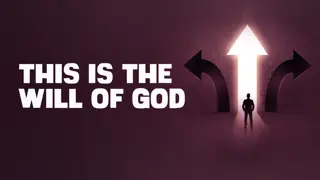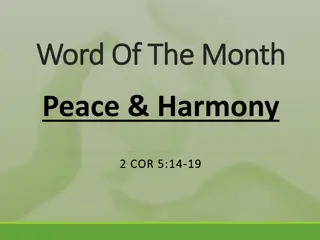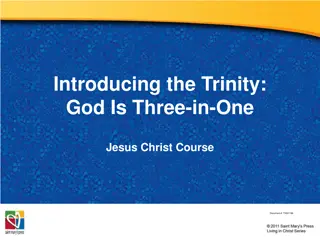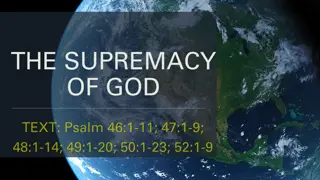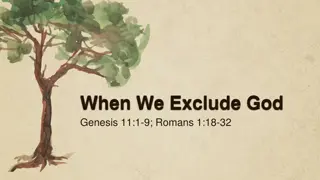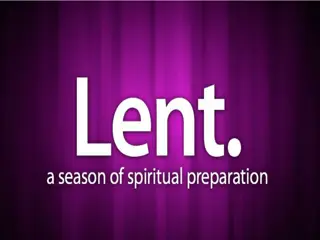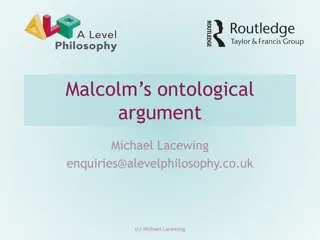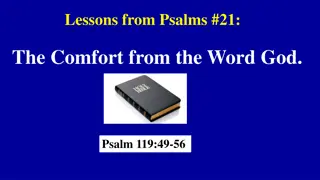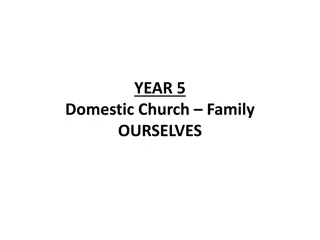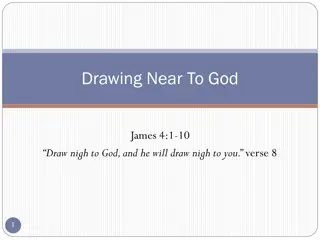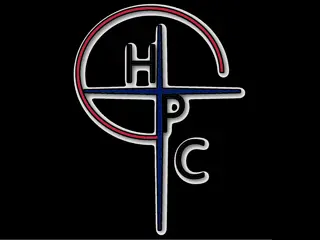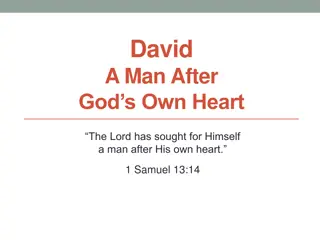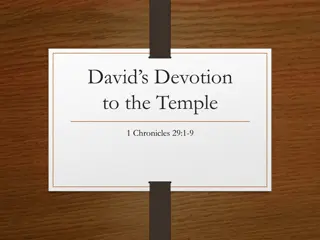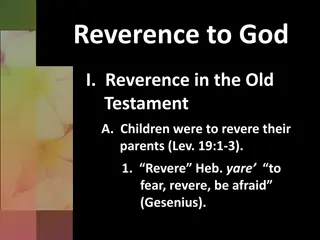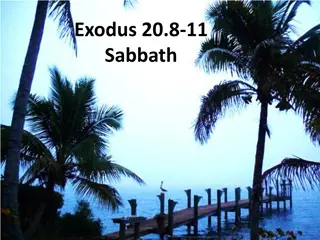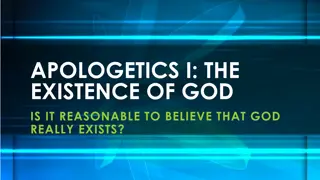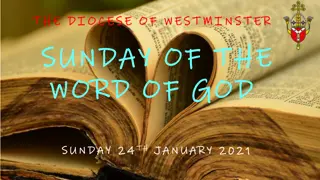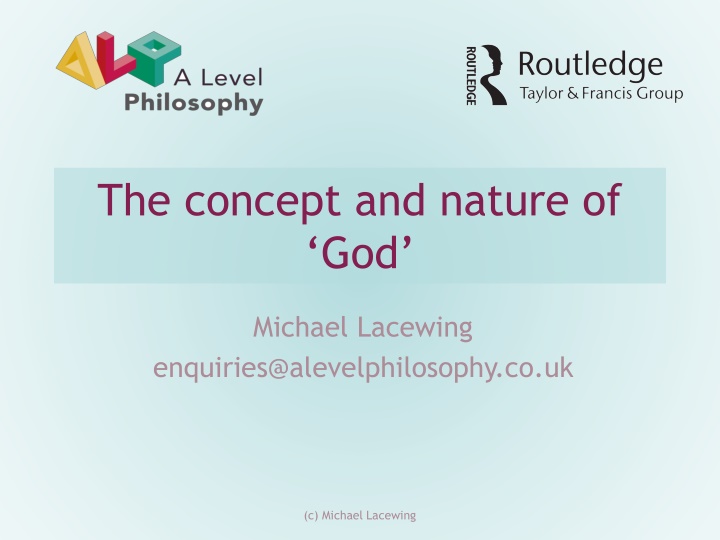
The Concept and Nature of God
Explore the concept of God as maximally great, omniscient, omnipotent, supremely good, and beyond the constraints of time. Delve into philosophical perspectives on the nature of God and the attributes associated with divine perfection.
Download Presentation

Please find below an Image/Link to download the presentation.
The content on the website is provided AS IS for your information and personal use only. It may not be sold, licensed, or shared on other websites without obtaining consent from the author. If you encounter any issues during the download, it is possible that the publisher has removed the file from their server.
You are allowed to download the files provided on this website for personal or commercial use, subject to the condition that they are used lawfully. All files are the property of their respective owners.
The content on the website is provided AS IS for your information and personal use only. It may not be sold, licensed, or shared on other websites without obtaining consent from the author.
E N D
Presentation Transcript
The concept and nature of God Michael Lacewing enquiries@alevelphilosophy.co.uk (c) Michael Lacewing
The concept of God God as maximally great : nothing can be greater than God Augustine: to think of God is to attempt to conceive something than which nothing more excellent or sublime exists Perfection: What is perfect as more real than what is not Perfection as self-sufficiency Ultimate reality as not dependent on anything else (c) Michael Lacewing
Omniscience Omni-: all ; scient: knowing Is it possible to know everything? E.g. if we have free will, perhaps it is impossible to know what we will freely choose in the future God is the most perfect possible being. So omniscience is knowing all the truths that it is possible to know What form does perfect knowledge take? Does God know via language or propositions or inference? Or only directly ? (c) Michael Lacewing
Omnipotence Omni-: all; potent: powerful But is omnipotence the power to do everything? What about the logically impossible? Could God make 2 + 2 = 5? (c) Michael Lacewing
Omnipotence Aquinas: No. What is impossible is a contradiction in terms The words that you use to describe the impossible literally contradict each other. So any description of a logically impossible state of affairs or power is not meaningful So what is logically impossible is not anything at all. This is no limitation on God s power there is still nothing that God can t do. (c) Michael Lacewing
Supreme goodness If good = perfect, then God is simply perfectly perfect There are lots of ways of being perfect This is a metaphysical sense of goodness If good = morally good, then God is good means God s will is always in accordance with moral values Connection: what is morally good is more perfect than what is not Evil as a lack or absence of goodness (c) Michael Lacewing
God and time God is self-sufficient. Therefore, God is dependent on nothing else for existence. Therefore, nothing can end God s existence. And nothing could bring God into existence. So, if God exists, God s existence has no beginning or end. (c) Michael Lacewing
Everlasting v. eternal Everlasting: Lasting through all time without beginning or end Eternal: Timeless, outside time, atemporal Without beginning or end because these are temporal concepts (c) Michael Lacewing

